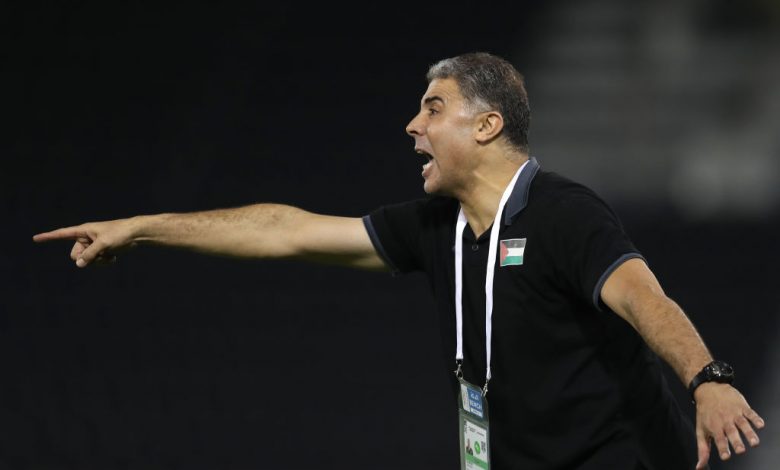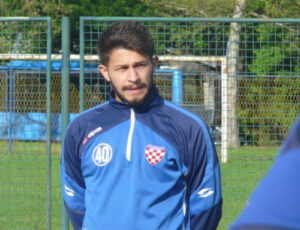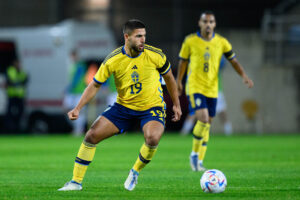When the announcement was made it was met with a collective eye roll. It seemed the Palestine Football Association was just going down the list of Abdel Nasser Barakat’s assistants instead of actually re-hiring the manager who led them to their best ever FIFA Ranking (73) in 2017.
April 2021 was perhaps the most tumultuous time in Palestinian Football. The head of the PFA was angling to run in national elections (since cancelled) and the national team had just suffered its worst ever competitive loss.
It was the nadir of Noureddine Ould Ali‘s time with the national team. One that spanned three years and 33 official matches and survived an Asian Cup campaign that featured no goals and disastrous losses to Singapore and Yemen in World Cup qualifying.
Palestine needed something different and it needed it fast.
Enter Makram Daboub. He was “just a goalkeeping coach” in the same vein that Ould Ali was just “a physical preparatory coach.”
Unbothered by the skeptics- and this publication was amongst them- Daboub got to work.
Two years in, Daboub has completely shattered expectations. World Cup qualifying ended with a high note as Palestine destroyed Singapore and Yemen by a combined score of 7-0.
Qualification to the FIFA Arab Cup was achieved in sweeping fashion- with Palestine coming back from a goal down to beat Comoros 5-1. While the results in the finals of that competition left something to be desired it was clear that a transformation was underway. That was proven when Palestine clinched Asian Cup qualification in style six months later.
To get an idea of how remarkable Palestine’s transformation has been- check out this tactical analysis and compare it to the reign of Noureddine Ould Ali.
Last month, Daboub also showed he could dismantle stronger sides in Asia. The 2-1 win over Bahrain featured a shorthanded squad (Seyam, Al-Battat, and Dabbagh were all missing), a change of formation (4-4-2), and a sharper opponent who had played 10 matches since Palestine’s last game.
Not only are things trending positively for Palestine- who will play Indonesia and China in the next international window- things are looking dour for most other teams on the continent.
As it stands, of the 24 teams who have qualified for the Asian Cup finals, only five are more tenured than Makram Daboub. Australia’s Graham Arnold, Bahrain’s Helio Sousa, Indonesia’s Shin Tae Yong, Japan’s Hajame Moriyasu, and Oman’s Branko Ivankovic.
Palestine’s coaching situation, as it stands, is better than that of Lebanon who have not scored a goal in five straight matches or Syria who decided to hire Hector Cuper in spite of how disastrous the Bernd Stange experience was.
The regional powers are also in a state of transition with Qatar, Iran, Korea, and Saudi Arabia all under new management. Rodolfo Arrubarrena has not inspired confidence in his one year at the helm of the UAE providing an opportunity for an upstart- probably from West Asia- to crash the party. Logic says it should be Bahrain or Oman given the stability they have had at the helm but perhaps both those sides have already peaked. After all, what more can Oman or Bahrain do with a limited pool of players?
That leaves three candidates- all of whom made coaching changes in 2021- looking to fill the power vacuum: Palestine, Jordan, and Uzbeksitan.
Palestine’s next four years will come into focus over the next three months. The 2023 AFC Asian Cup draw is set for May 11th and in July Palestine will find out their three opponents for Round 2 of World Cup qualification.
With the way Daboub and the team are preforming- there’s every chance to make history.




